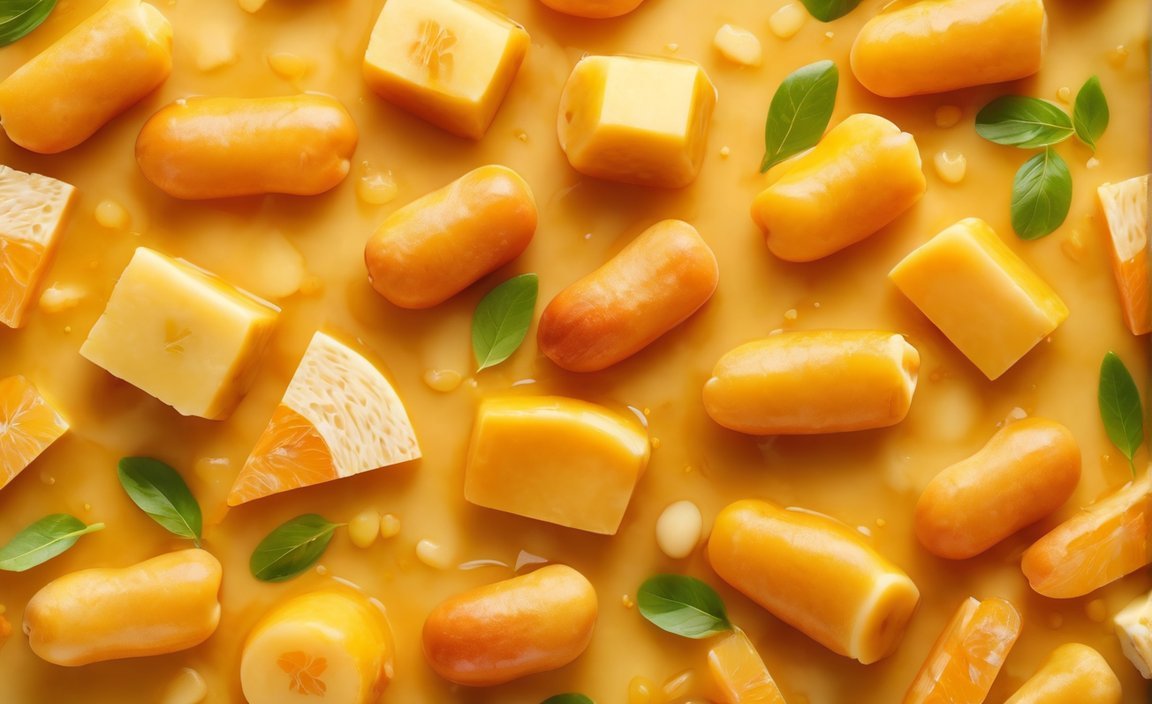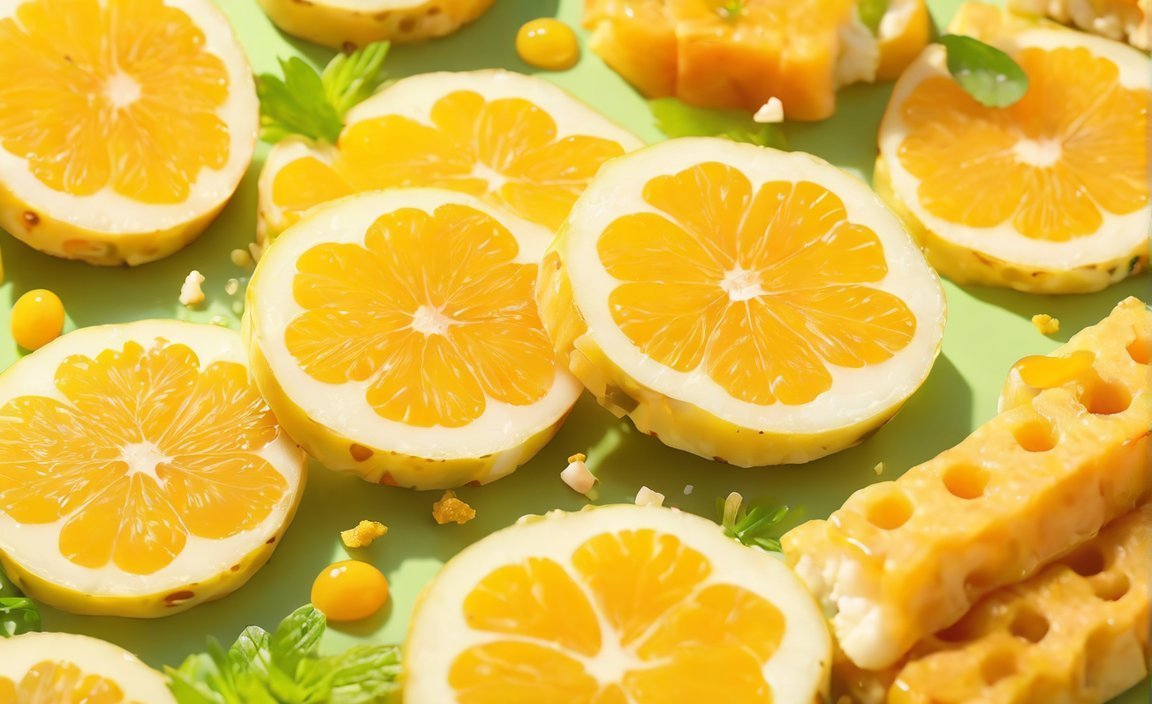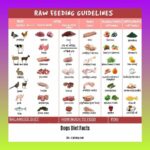Discover the top 10 safe and healthy human foods for dogs with our expert veterinary nutritionist guide. As pet owners, we strive to provide the best care for our furry companions, and nutrition plays a vital role in their overall health and well-being. In this comprehensive guide, we will unveil a carefully curated list of human foods that not only satisfy your dog’s taste buds but also offer numerous health benefits. With the guidance of our seasoned veterinary nutritionist, you can confidently add these foods to your dog’s diet, knowing that you are providing safe and nourishing options.

Key Takeaways:
– Incorporating certain human foods into your dog’s diet in moderation can provide nutritional benefits and contribute to their overall well-being.
– Safe human foods for dogs include lean meats (without bones or skin), fresh vegetables (cooked or steamed), fresh fruits, boiled white rice, carrots, eggs, green beans, salmon, yogurt, chicken, pumpkin, and peanut butter.
– It is important to feed human food in moderation to prevent obesity in dogs.
– Certain human foods such as processed foods, fatty foods, and sugary foods should be avoided as they can be toxic and potentially deadly for dogs.
– Consult with a veterinarian before introducing new foods to your dog’s diet.
10 Human Foods That Are Good for Dogs
As a seasoned veterinary nutritionist, I understand the importance of providing optimal nutrition for our furry companions. While a healthy balanced diet of high-quality dog food is essential, there are certain human foods that can also be beneficial for our dogs when fed in moderation. Today, I will guide you through ten human foods that are not only safe for dogs but can also provide numerous health benefits. So let’s dive in!
1. Lean Meats without Bones or Skin
Lean meats such as chicken and turkey are excellent sources of protein for your dog. They are also rich in essential amino acids, which are necessary for muscle growth and repair. When preparing lean meats for your furry friend, make sure to remove any bones or skin, as they can pose a choking hazard or cause digestive issues.
2. Fresh Vegetables (Cooked or Steamed)
Just like us, dogs can benefit from the vitamins, minerals, and fiber found in fresh vegetables. Some great options include carrots, green beans, and peas. Before offering these veggies to your dog, it’s best to cook or steam them to improve digestibility.
3. Fresh Fruits
Certain fruits can be a tasty and nutritious addition to your dog’s diet. Apples, for example, are packed with vitamins and fiber, but remember to remove the seeds and core beforehand. Other safe fruit options include blueberries, bananas, and watermelon, which can provide antioxidant and hydrating properties.
4. Boiled White Rice
Plain boiled white rice can be beneficial for dogs with upset stomachs or digestive issues. It is easy to digest and can help soothe their gastrointestinal tract. However, it’s important to note that rice should only be offered in small quantities and as a temporary measure.
5. Eggs
Eggs are a fantastic source of protein, vitamins, and minerals. They can be served cooked or scrambled for your dog’s breakfast or as a treat. Keep in mind that eggs should always be cooked thoroughly to avoid the risk of salmonella.
6. Salmon
Rich in omega-3 fatty acids, salmon can help support your dog’s immune system, promote a healthy coat, and support joint health. It’s important to cook salmon thoroughly and remove any bones to prevent choking hazards.
7. Yogurt
Plain, unsweetened yogurt containing live cultures is a healthy snack option for dogs. It can provide probiotics, which aid in digestion and support gut health. However, be mindful of lactose intolerance in some dogs and start with small amounts.
8. Chicken
Cooked chicken is a great source of lean protein for your dog. It can be added to their regular meals or used as a high-value treat during training. Just make sure to remove any seasoning, bones, or skin before feeding.
9. Pumpkin
Pumpkin is an excellent source of fiber and can be beneficial for dogs with digestive issues or irregular bowel movements. It can help regulate their digestion and improve stool consistency. Remember to use plain canned pumpkin without any added spices or sugar.
10. Peanut Butter
A favorite among many dogs, peanut butter can be a healthy and tasty treat. It is a good source of protein and healthy fats. However, it’s crucial to choose natural peanut butter without added sugar or artificial sweeteners, as these can be harmful to dogs.
Feeding human foods to our dogs can be a way to enhance their diet and provide extra nutritional benefits. However, it’s important to always feed these foods in moderation and consult with a veterinarian before making any significant changes to your dog’s diet.
So, there you have it – ten human foods that are not only safe for dogs but can also provide various health benefits. Remember, your dog’s well-being is a priority, and understanding their nutritional needs is a crucial part of being a responsible pet owner.
Here are 10 fun facts about hawksbill sea turtles that will amaze you! Find out more about these fascinating creatures and their incredible abilities. Check out our article 10 fun facts about hawksbill sea turtles to discover their unique characteristics and behaviors.
Did you know that there are 10 human foods dogs can eat safely? Learn about these dog-friendly foods and how they can benefit your furry friend. Explore our article on 10 human foods dogs can eat to ensure your dog’s diet is both delicious and nutritious.
Discover 10 interesting facts about alligator snapping turtles, one of the largest freshwater turtles in the world. Dive into the world of these prehistoric-looking creatures with our article on 10 interesting facts about alligator snapping turtles and be amazed by their unique features.
Have you ever wondered what it’s like to be a veterinarian? Learn 10 interesting facts about the profession and the daily experiences of these animal doctors. Check out our article on 10 interesting facts about being a veterinarian and discover the exciting world of veterinary medicine.
Falcons are incredible birds of prey known for their speed and agility. Uncover 10 fascinating facts about these majestic creatures in our article on 10 interesting facts about falcons. From their hunting techniques to their impressive aerial abilities, you’ll be amazed by the world of falcons.
Hawksbill sea turtles are a critically endangered species with remarkable characteristics. Learn 10 interesting facts about these fantastic creatures in our article on 10 interesting facts about hawksbill sea turtles. Explore their habitats, nesting habits, and conservation efforts to protect these magnificent turtles.
Did you know that hawksbill turtles play a crucial role in coral reef ecosystems? Discover 10 intriguing facts about hawksbill turtles and their contributions to marine biodiversity in our article on 10 interesting facts about hawksbill turtles. Dive into their world and learn more about these beautiful sea creatures.
Snapping turtles have a reputation for being fierce and resilient. Explore 10 interesting facts about snapping turtles in our article on 10 interesting facts about snapping turtles. From their powerful jaws to their unique adaptations, you’ll be captivated by the world of snapping turtles.
The hawksbill sea turtle is an iconic species that faces numerous threats. Learn 10 interesting facts about the hawksbill sea turtle and the conservation efforts being made to protect them in our article on 10 interesting facts about the hawksbill sea turtle. Dive into their world and discover how you can help ensure the survival of these magnificent creatures.
Explore these captivating articles with active internal links to satisfy your curiosity about hawksbill sea turtles, dogs, alligator snapping turtles, veterinarians, falcons, hawksbill turtles, snapping turtles, and the hawksbill sea turtle. Happy reading!
Salmon: A great source of omega-3 fatty acids, which promote a shiny coat and joint health.
Salmon is not only delicious for us humans, but it can also provide numerous health benefits for our furry friends! As a seasoned veterinary nutritionist, I want to share with you the wonders of including salmon in your dog’s diet. Salmon is a great source of omega-3 fatty acids, which promote a shiny coat and joint health in dogs.
Let’s dive deeper into why salmon is a fantastic choice for your canine companion:
The Benefits of Salmon for Dogs:
Omega-3 Fatty Acids for a Shiny Coat: Salmon is rich in omega-3 fatty acids, which nourish your dog’s skin and coat. These healthy fats can reduce dryness and promote a shiny and lustrous coat. Who doesn’t want a happy and healthy-looking pup?
Joint Health for Active Dogs: Omega-3 fatty acids found in salmon have anti-inflammatory properties, which can be beneficial for dogs with joint issues. They can help reduce inflammation, improve mobility, and ease any discomfort your dog may be experiencing. So if your furry friend loves to run, jump, and play, incorporating salmon into their diet could be a great idea!
Protein Powerhouse: Salmon is a fantastic source of protein for dogs. High-quality protein is essential for building and maintaining lean muscle mass, supporting growth, and keeping your pup healthy and strong. Including salmon in your dog’s diet can ensure they receive the necessary protein they need to thrive.
Heart-Healthy Goodness: The omega-3 fatty acids in salmon not only benefit your dog’s coat and joints but can also support their heart health. These healthy fats can contribute to a healthy cardiovascular system, promoting overall well-being for your furry friend.
How to Incorporate Salmon into Your Dog’s Diet:
Now that we understand the amazing benefits of salmon, you may be wondering how to include it in your dog’s meals. Here are some tips:
Cooked and Boneless: Always ensure the salmon is thoroughly cooked and any bones are removed. Cooked salmon is safe for dogs, but raw or undercooked salmon can pose health risks.
Moderation is Key: As with any new food, it’s important to introduce salmon gradually into your dog’s diet. Start with small portions and observe how your pup responds. If there are no adverse reactions, you can gradually increase the amount over time.
Incorporate into Homemade Meals: If you prepare homemade meals for your dog, consider adding cooked salmon to their recipes. Be sure to balance the meal with other dog-safe ingredients to provide a well-rounded and complete diet.
Quality Commercial Dog Food: Many high-quality commercial dog foods include salmon as an ingredient. Look for reputable brands that prioritize the use of real salmon and other nutritious ingredients.
Treat Time: You can also offer small pieces of cooked salmon as a special treat for your dog. It’s a healthy alternative to processed treats and can make for a tasty reward during training sessions.
Remember, every dog is unique, and it’s essential to consult with your veterinarian before making any significant changes to your dog’s diet. They can provide personalized recommendations based on your dog’s specific needs.
Key Takeaways:
- Salmon is a nutrient-rich food that can provide numerous health benefits for dogs.
- The omega-3 fatty acids in salmon promote a shiny coat and support joint health in dogs.
- Salmon is a great source of protein and can contribute to your dog’s muscle development and overall well-being.
- Introduce salmon gradually and in moderation, ensuring it is thoroughly cooked and boneless.
- You can incorporate salmon into homemade meals, choose quality commercial dog foods with salmon, or offer it as a special treat.
Citations:
Carrots: Low in calories and high in vitamins, carrots can benefit a dog’s dental health.
Carrots are not just a tasty vegetable for humans, they can also be a healthy and beneficial addition to a dog’s diet. Low in calories and high in vitamins, carrots offer numerous health benefits, especially when it comes to dental health. As an experienced veterinary nutritionist, I have seen firsthand the positive effects of incorporating carrots into a dog’s meals. In this article, I will provide you with essential information about carrots, their nutritional value, and how they can promote your dog’s dental well-being.
Carrots are packed with important nutrients that support overall canine health. They contain carotenoids, which are powerful antioxidants known for their cancer-fighting properties. Studies have shown that these antioxidants in carrots can help reduce the risk of certain types of cancer, including prostate, colon, and stomach cancers [^27^][^28^][^29^].
In addition to their anti-cancer properties, carrots also offer benefits for heart health. High cholesterol levels can increase the risk of heart disease, but consuming carrots has been shown to help lower cholesterol levels [^12^][^13^].
Furthermore, carrots are rich in vitamin A and carotenoids, which are essential for maintaining good vision. Regularly feeding your dog carrots can help prevent conditions like night blindness [^34^].
For those who are looking to manage their dog’s weight, carrots are a smart choice. They are a low-calorie food that can increase feelings of fullness and reduce calorie intake in subsequent meals. Including carrots in a weight loss diet can be beneficial for dogs [^33^].
Now, let me highlight some key takeaways about carrots for your dog’s dental health:
Key Takeaways:
– Carrots are low in calories and high in vitamins, making them a healthy snack option for dogs.
– The crunchy texture of carrots can help remove plaque and tartar buildup on your dog’s teeth, promoting dental health.
– Chewing on carrots stimulates saliva production, which can wash away bacteria and keep your dog’s mouth fresh.
– Carrots can be a good alternative to high-calorie dog treats, providing a satisfying crunch without the added calories.
– Remember to offer carrots in appropriate sizes and monitor your dog while they chew to prevent choking.
Incorporating carrots into your dog’s diet can be as simple as adding a few baby carrots as a crunchy treat or mixing grated carrots into their meals. However, it’s essential to introduce new foods gradually and in moderation. If you have concerns about your dog’s specific dietary needs or any potential allergies, consult with a veterinarian before making significant changes to their diet.
Remember, as a responsible pet owner, it’s crucial to consider your dog’s overall nutrition when introducing new foods. While carrots provide numerous health benefits, they should complement a balanced diet tailored to your dog’s individual needs. By incorporating carrots into your dog’s meals, you can contribute to their dental health and overall well-being.
Sources:
– Healthline: Carrots 101: Nutrition Facts and Health Benefits
– WebMD: Carrots: Health Benefits, Nutrients, and More
Eggs: A Complete Protein Source for Dogs
As a seasoned veterinary nutritionist, I believe it’s essential for pet owners to be well-informed about the foods that are safe and beneficial for their dogs. One such food that is often overlooked is eggs. They are not only a complete protein source but also provide essential nutrients that can support a dog’s overall health and well-being.
Why are eggs good for dogs?
Eggs are packed with protein, essential amino and fatty acids, vitamins, and minerals. They are a high-quality source of protein, fat, and vitamins for dogs, making them a great addition to their diet. In fact, one egg contains 6 grams of high-quality protein and 5 grams of healthy fats.
The yolks of eggs contain important vitamins and fatty acids, while the whites are almost pure protein. Even the shells contain calcium carbonate with other minerals. This nutrient-dense combination can provide numerous health benefits for dogs.
How to incorporate eggs into a dog’s diet?
There are several ways to incorporate eggs into a dog’s diet. Eggs can be added to dry, canned, frozen, or refrigerated dog foods, used as between-meal snacks, or even used as training treats. However, it is important to introduce eggs slowly into a dog’s diet and monitor for any stomach issues.
Are there any risks or precautions?
While eggs are generally safe for dogs to consume, there are a few precautions to keep in mind. It is recommended to cook eggs thoroughly before feeding them to your dog. Raw egg whites should be avoided as they contain a protein called avidin, which can interfere with a dog’s biotin absorption.
Key Takeaways:
- Eggs are a complete protein source that provides essential nutrients for dogs.
- They are rich in protein, linoleic acid, and fat-soluble vitamins.
- Dogs can safely eat eggs, and they can be a great addition to their diet.
- Introduce eggs slowly and monitor for any stomach issues.
- Cook eggs thoroughly to avoid any potential health risks.
Sources:
– American Kennel Club – Can Dogs Eat Eggs?
– Hill’s Pet – Can Dogs Eat Eggs?

FAQ
Q1: Can dogs safely eat lean meats like chicken?
A1: Yes, lean meats like chicken are safe for dogs to eat. They provide a good source of protein and can be included in their diet to meet their nutritional needs.
Q2: Are fresh vegetables beneficial for dogs?
A2: Yes, fresh vegetables can be beneficial for dogs. They provide essential vitamins and minerals and can be cooked or steamed before feeding them to dogs.
Q3: Can dogs eat fresh fruits?
A3: Yes, dogs can eat fresh fruits. Fruits like apples can be a healthy addition to their diet, but it’s important to remove any seeds or pits that can be toxic to dogs.
Q4: Is boiled white rice safe for dogs?
A4: Yes, boiled white rice is safe for dogs to eat. It can be a bland and easily digestible option for dogs with an upset stomach or as a dietary supplement.
Q5: Can dogs have peanut butter?
A5: Yes, dogs can have peanut butter, but it should be given in moderation. It is important to choose natural peanut butter without added sugars or xylitol, which can be toxic to dogs.
- China II Review: Delicious Food & Speedy Service - April 17, 2025
- Understand Virginia’s Flag: History & Debate - April 17, 2025
- Explore Long Island’s Map: Unique Regions & Insights - April 17, 2025
















